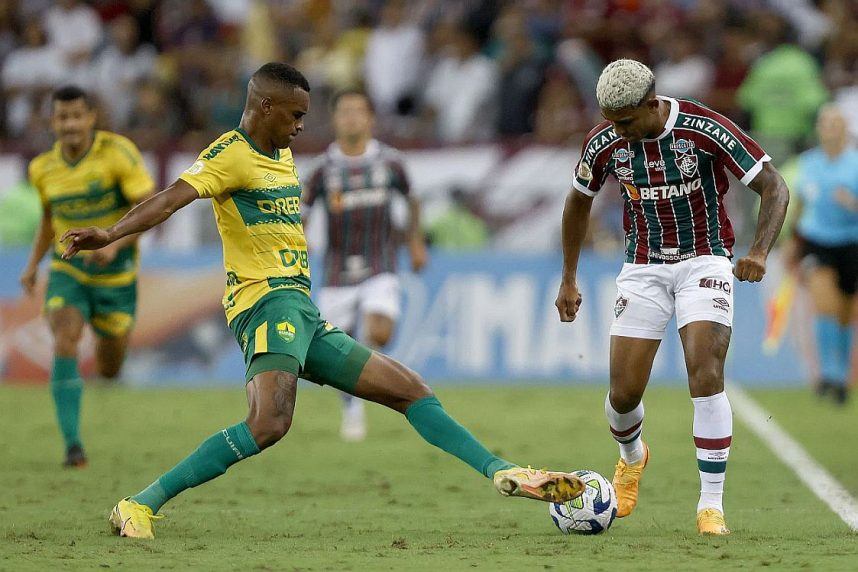Posted on: July 7, 2023, 07:36h.
Last updated on: July 7, 2023, 07:36h.
Brazil’s Operation Maximum Penalty investigation into match-fixing in sports has resulted in further consequences for athletes. Yesterday, the Superior Court of Sports Justice (STJD for its Portuguese acronym) concluded another chapter in one of the largest scandals to impact Brazilian soccer, issuing fines, permanent bans, and temporary suspensions.

Earlier this year, it was revealed that there were multiple cases of players who had received money for directly influencing matches in various soccer categories, primarily through red or yellow cards or expulsions. An investigation into the scandal began last year after Romário, a Vila Nova midfielder, admitted to receiving BRL150,000 (US$30,480) for committing a penalty against Sport Recife.
Since then, Maximum Penalty has uncovered several additional cases. Initially focusing on low-tier soccer in Brazil, the investigation revealed issues at all levels and eventually extended to global soccer involving Brazilian players.
More Athletes Fall
One notable case was that of Kevin Lomónaco, a central defender for Red Bull Bragantino. Currently participating in the Copa Sudamericana tournament, the Argentinean player was separated from Bragantino and claimed ignorance of the criminality of his actions.
This past May, he admitted to receiving BRL30,000 (US$6,096) for receiving a yellow card during a match against América Mineiro. After confessing, the court imposed a 380-day suspension and a fine of BRL25,000 (US$5,080).
However, these were not the only cases within the Brasileirao, the top tier of Brazilian soccer. Eduardo Bauermann, at the time with Santos FC, also became linked to the issue after it was confirmed that he received US$10,000 for receiving a yellow card during a match against Avai. The game took place on November 5 of last year, and Santos immediately terminated his contract upon learning of the incident.
In addition to these two players, the STJD charged six others: Fernando Neto (now with Sao Bernardo, but with Operário at the start of the investigation), Gabriel Tota (formerly with Juventude), Matheus Gomes (Ipatinga), Onitlasi Moraes (formerly with Juventude, currently on loan to Aparecidense-GO), Paulo Miranda (formerly with Juventude), and Igor Cariús (Sport Recife).
The STJD announced its verdict against all of them on Thursday, finding them all guilty except for Cariús, who was acquitted of all charges.
Careers Come To an End
Bauermann, who found a new team in Alanyaspor in Turkey, received a 380-day suspension similar to Lomónaco’s and also had to pay a fine of BRL35,000 (US$7,112). Neto received a 12-month suspension and a fine of BRL$15,000 (US$3,048).
Moraes and Miranda were fined BRL55,000 and BRL70,000 (US$11,176 and $14,224), respectively, and received 720-day suspensions.
The most severe punishments were given to Tota and Gomes, as both received lifetime bans and were also fined BRL30,000 and BRL10,000 (US$2,032), respectively.
Moraes and Miranda’s cases were the most complex, as they had received money for influencing more than one game. Additionally, according to media outlet Globo, both were seen on a video call with one of the leaders of the illegal sports betting organization involved in the match-fixing scheme.
The scandal is not yet over, as the Brazilian government is conducting its own investigation through a Parliamentary Investigation Commission. The inquiry is currently on break as Brazil’s Parliament is in recess from July 18-31, after which the commission will resume its work.


